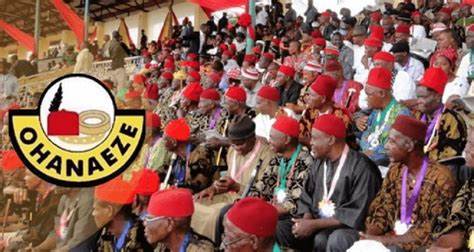The Ohanaeze Ndigbo Youth Council Worldwide has rejected the Joint Admissions and Matriculation Board’s (JAMB) proposal to conduct fresh examinations for candidates affected by technical errors in the 2025 Unified Tertiary Matriculation Examination (UTME), instead demanding automatic scores of 300 for all South-East candidates.
This demand comes in response to JAMB’s recent acknowledgment of systemic errors that disproportionately affected candidates from the five South-Eastern states and Lagos State in the recently released examination results.
In a press statement issued Thursday, the National President of the youth organization, Mazi Okwu Nnabuike, described JAMB’s solution of rescheduling examinations as “entirely unacceptable” and insufficient to address the situation.
“Subjecting these candidates to another round of examination represents an additional burden of mental stress, financial strain, and physical risk that they should not have to bear,” Nnabuike stated. “The initial problem was not created by the candidates but by JAMB’s technical failures.”
The controversy began when JAMB Registrar, Professor Ishaq Oloyede, admitted on Wednesday that technical glitches had contributed significantly to the unusually low performance recorded among candidates from South-Eastern states. Following this admission, the examination body announced plans to organize a special examination session for the approximately 379,997 candidates affected by the system errors.
Ohanaeze’s leadership has questioned the logistics and fairness of this approach, raising concerns about transportation costs for families already facing economic hardships and security risks associated with travel in various parts of the country.
“Who will shoulder the financial burden of this remedial process? Parents are already struggling under difficult economic conditions,” the statement read. “Furthermore, how can these young people be expected to perform optimally after experiencing such psychological distress following the release of compromised results?”
The youth organization has suggested what it considers a more equitable solution: awarding all affected South-Eastern candidates automatic scores of 300 out of the possible 400 points.
“Igbo students are known for their academic excellence and would likely have achieved scores of 300 or higher under normal circumstances,” Nnabuike asserted. “The technical failures appear suspiciously targeted at denying educational opportunities to South-Eastern youth.”
The statement concluded with a threat of legal action should JAMB fail to meet these demands, dismissing the Registrar’s public apology as insufficient to address the magnitude of the issue.
This controversy has sparked widespread debate among educational stakeholders, with various groups including the National Association of Nigerian Students (NANS) and several prominent academics calling for accountability over what many are now referring to as the “JAMB examination scandal.”
JAMB has yet to respond to Ohanaeze’s specific demands, though the board’s preparations for the rescheduled examinations reportedly continue.



















